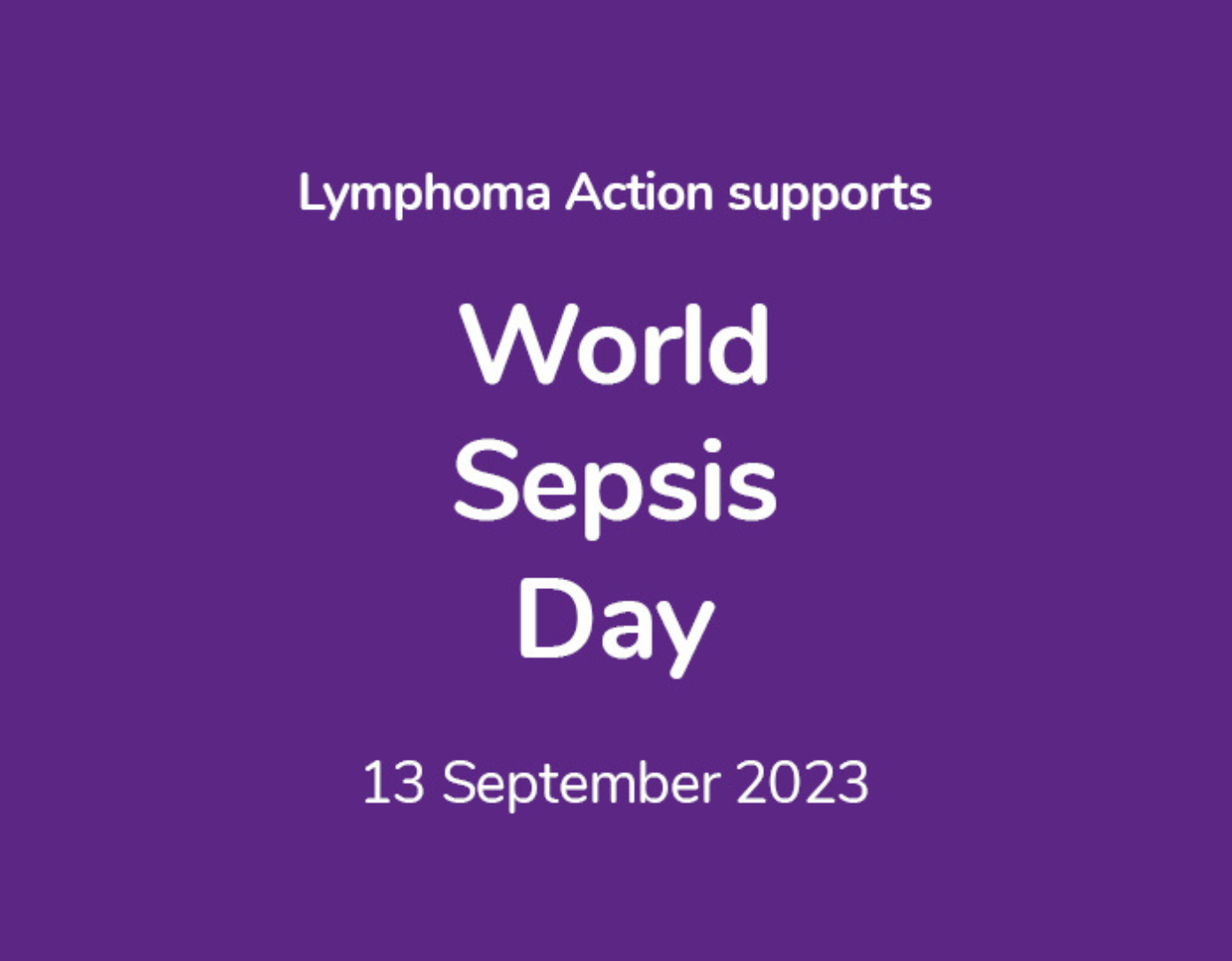World Sepsis Day 2023
Published on: 13 September 2023Sepsis - know the signs

World Sepsis Day is held on September 13 every year to raise awareness of this extremely serious condition. Sepsis accounts for 11 million deaths worldwide each year.
Sepsis is a whole-body reaction triggered by an infection. Neutropenic sepsis is sepsis in someone who has a low neutrophil count (neutropenia). Many people who have lymphoma are affected by neutropenia if they have a lower number of neutrophils (a type of white blood cell) than is usual for them. These white blood cells help to fight infection, meaning that people with neutropenia have a higher-than-usual risk of getting an infection and can develop sepsis much more quickly than normal.
People having stronger chemotherapy are more at risk of this happening as their blood count can be very low, but it can affect people having quite gentle treatment. If it does develop, it is serious, possibly life-threatening, and must be treated urgently.
Always seek help quickly if you might be neutropenic and feel unwell.
The most common sign of sepsis, whether or not someone is neutropenic, is a raised temperature. If you are having treatment for lymphoma, try to keep a thermometer handy so you can measure your temperature accurately. Contact your hospital at once if your temperature is 37.5°C or more on two occasions within an hour, or as per your local hospital guidelines.
Sepsis doesn’t always cause a high temperature though, especially if someone is taking steroids. Symptoms of sepsis and infection can include:
- a temperature of 37.5°C or more
- a low temperature below 35°C
- shivering episodes
- chills and sweating
- a fast heartbeat or breathing
- clammy, cold, pale or mottled skin
- feeling generally unwell, dizzy, confused or disorientated
- cough, sore throat or mouth, earache
- redness and swelling around skin sores, injuries or intravenous lines
- diarrhoea, nausea or vomiting
- a burning sensation when passing urine
- unusual vaginal discharge or itching
- unusual stiffness of the neck and difficulty with bright lights
- weeing less than usual
- loss of consciousness.
Contact your hospital team immediately if you have any of these symptoms, no matter how mild or vague they may seem. Always seek help quickly if you might be neutropenic and feel unwell.
Acknowledgement: With thanks to Charlotte Bloodworth, Advanced Nurse Practitioner, University of Wales, Cardiff for reviewing this information.
